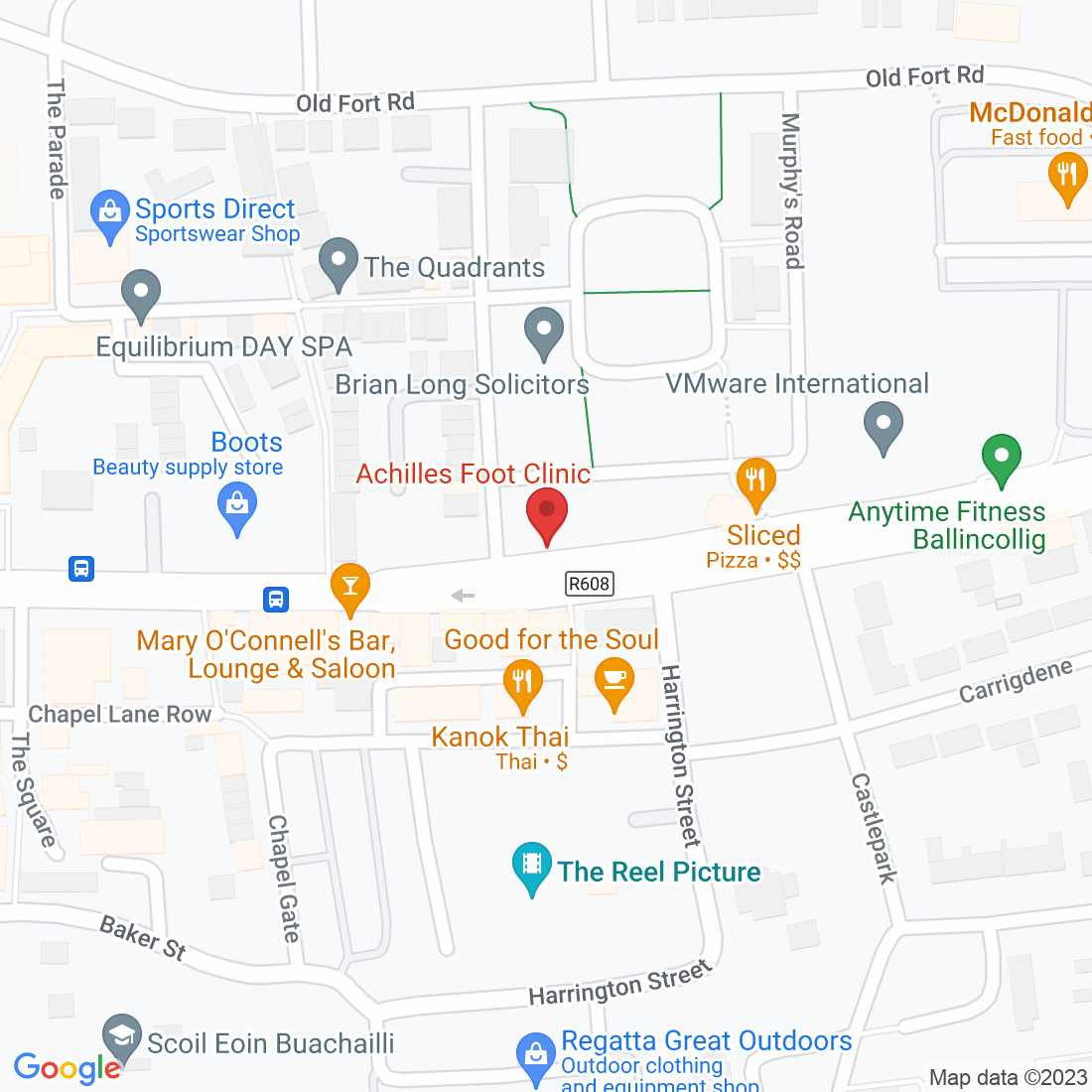
We have all been there, neglected a niggle in our foot and told ourselves that it would probably go away. Weeks have passed, even months, and it’s only getting worse. Then finally, when we are hobbling around barely able to walk, we decide to seek help…
Well, at Achilles Foot Clinic, we are here to help you.

Why Do My Heels Hurt? Understanding Plantar Fasciitis and Heel Spurs
Introduction
If you are experiencing heel pain, you are not alone. Heel discomfort is a common issue that many people face, often due to conditions like plantar fasciitis or heel spurs. At Achilles Podiatry Clinic in Ballincollig, Cork, we understand the impact that foot pain can have on your daily life. This post will explain what causes heel pain, its symptoms, and how it can be treated effectively.
What Causes Heel Pain?
Heel pain typically arises from inflammation or injury to various structures of the foot. Two of the most prevalent conditions associated with heel pain are:
Plantar Fasciitis: This is the inflammation of the plantar fascia, a thick band of tissue that runs along the bottom of your foot connecting your heel to your toes.
Heel Spurs: These are bony protrusions that develop on the underside of the heel bone, often associated with plantar fasciitis.
Understanding Plantar Fasciitis
Plantar fasciitis is characterized by a sharp, stabbing pain that typically occurs with the first steps in the morning or after prolonged periods of sitting. It results from overuse or excessive stress on the plantar fascia, caused by:
Flat feet or high arches
Inadequate footwear
High-impact activities like running or jumping
Occupation requiring prolonged standing
Understanding Heel Spurs
Heel spurs occur when calcium deposits build up on the heel bone due to persistent strain on the plantar fascia. These spurs can be asymptomatic or cause pain, particularly when walking or standing. They frequently develop alongside plantar fasciitis.
What Are the Symptoms of Heel Pain?
Symptoms of heel pain can vary depending on the condition but generally include:
Sharp, aching, or stabbing pain in the heel
Pain that worsens with activity or after prolonged inactivity
Swelling or inflammation around the heel
Tenderness when touching the heel
How Can I Treat Heel Pain?
Treatment options for heel pain focus on relieving symptoms and addressing the underlying causes. Some effective methods include:
Rest: Avoiding activities that involve prolonged standing or walking can help reduce inflammation.
Ice Therapy: Applying ice to the affected area can help decrease swelling and pain.
Footwear Modification: Wearing shoes with proper arch support, cushioning, and heel padding can alleviate pressure on the heel.
Orthotic Devices: Custom or over-the-counter orthotics can provide additional support and redistribute weight.
Stretching and Strengthening Exercises: Targeted exercises can help improve flexibility and strengthen the foot muscles.
Physical Therapy: Consultation with a podiatrist or physical therapist can provide tailored treatment plans.
Medications: Over-the-counter anti-inflammatory medications (NSAIDs) can alleviate pain and reduce swelling.
Corticosteroid Injections: If conservative treatments are ineffective, injections may be recommended to provide temporary relief.
When Should I See a Podiatrist?
If your heel pain persists or worsens despite self-care measures, it is recommended to consult a podiatrist. At Achilles Podiatry Clinic in Ballincollig, Cork, our experienced team can conduct a thorough evaluation, including a physical examination and imaging tests if necessary, to determine the best treatment plan tailored to your needs.
Frequently Asked Questions (FAQs)
1. Can heel pain be caused by obesity?
Yes, excess weight can increase the strain on your feet, making heel pain more likely.
2. Are certain activities more likely to cause heel pain?
High-impact sports such as running, basketball, or aerobics can increase the risk of developing heel pain due to repetitive stress.
3. How long does it typically take for plantar fasciitis to heal?
With appropriate treatment, plantar fasciitis may take several weeks to a few months to heal fully.
4. Are there any home remedies for heel pain?
In addition to rest and ice therapy, gentle stretching exercises and proper footwear can help manage symptoms at home.
5. Can heel spurs be removed surgically?
In severe cases where conservative treatments fail, surgical options to remove heel spurs may be considered.
Conclusion
Understanding the causes of heel pain is essential for effective treatment. If you are struggling with heel discomfort, do not hesitate to reach out to the Achilles Podiatry Clinic in Ballincollig, Cork. Our team of experts is here to help you regain your mobility and quality of life. Book your appointment today!
Ask Lorcan And His Team
Fill in the form to request a Call From Our Team
Fill in the form to request a Call From Our Team
One of our team will call you for FREE and answer any questions or concerns you may have about Bunions.
One of our team will call you for FREE and answer any questions or concerns you may have about your uncomfortable Bunions.








